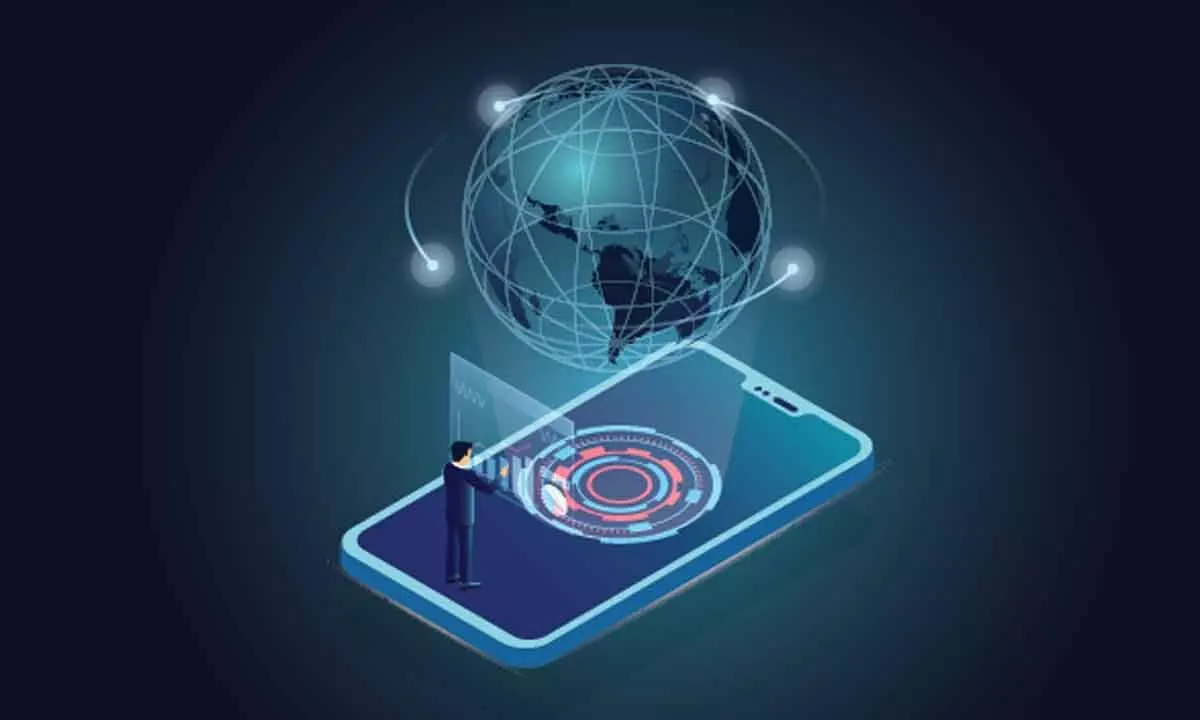Web 3.0 set to democratize internet space
It will bring us an impartial internet by enabling the individual to be a content owner
image for illustrative purpose

There has been lot of talk around Web.0, but what does the term really imply? The web is the Internet's central information retrieval system established in the 1990s. It is the primary tool used to read, write and share information across the Internet and to interact with other users. The web has evolved since its conception both from the perspective of users as well as developers. The world would not be what it has become today without the web. It touches almost every aspect of modern living nowadays.
In just a few decades, the internet has gone from limited access to only reading information to communicating through social media to owning a part of the internet. With each passing year, more and more people have gained access to the internet. The web has evolved like human lives or one can say the web helped humans evolve their living.
Web 1.0
The era of Web 1.0 was announced by the invention of the earliest browsers such as Mosaic, Netscape, Internet Explorer, etc. Web 1.0 was the first stage of the web phenomenon which was also referred to as the static web or world wide web as it only allowed read function. It meant that users were limited to only reading the content that was made available to them by the small content providers. It was like a digitized version of a newspaper or magazine.
Web 2.0
Web 2.0 is the longest era of the web (2000-2010) which is also referred to as the read-write web or the social web. It introduced us to interactive web applications mediated by expensive servers and allowed the user to become content creators. The growth of Web 2.0 was mainly because of important innovations such as mobile internet access, social networking, and cloud computing. The emergence of Social media encouraged and promoted good content creation from its users. Cloud servers capitalized on the rise of new websites by providing low-cost data storage, businesses could rent the cheap storage and maintenance systems without investing in their own expensive and dedicated infrastructure. Web 2.0 is completely built around the users with different platforms figuring out ways to enable their users to create their content to keep themselves engaged.
Web 2.5
This is the transitional phase between Web 2.0 and Web 3.0 and the current era of the web that we are living in. Web 2.5 mainly has been focusing on the evolution of mobile computing and mobile technologies to create web applications that can connect users to any device at any given time and place.
Web 3.0
Web 3.0 involves presenting data in a semantic form. It is a relatively new concept that aims to focus on the future of the web. Founded on two core technological innovations i.e. artificial intelligence and decentralized data networks, it focuses on the decentralization of data and aims to break down the massive databases stored by Internet giants and give greater control to internet consumers. Web 3.0 will work through blockchain making it trust less and permission less i.e. it will allow the users to interact with each other without a mediator and anyone will be able to participate without the authorization of a governing body. Web 3.0 will make users the content owners, data generated by any computing resource will be sold by and to users through decentralized data networks, ensuring that users retain the entire ownership and control instead of a middleman.
Web 2.0 was driven by developments in mobile internet and cloud computing, Web 3.0 will be built on new technological innovations - decentralized data networks, blockchain, and artificial intelligence. It will bring us an impartial internet by enabling the individual to be a content owner. It's decentralized blockchain protocol will have individuals connect to an internet where they can own and be properly compensated for their data or content, eclipsing an unjust web where giant centralized companies are the only ones that own and profit from it.
(The author is co-founder & CEO of tech startup Myraah)

